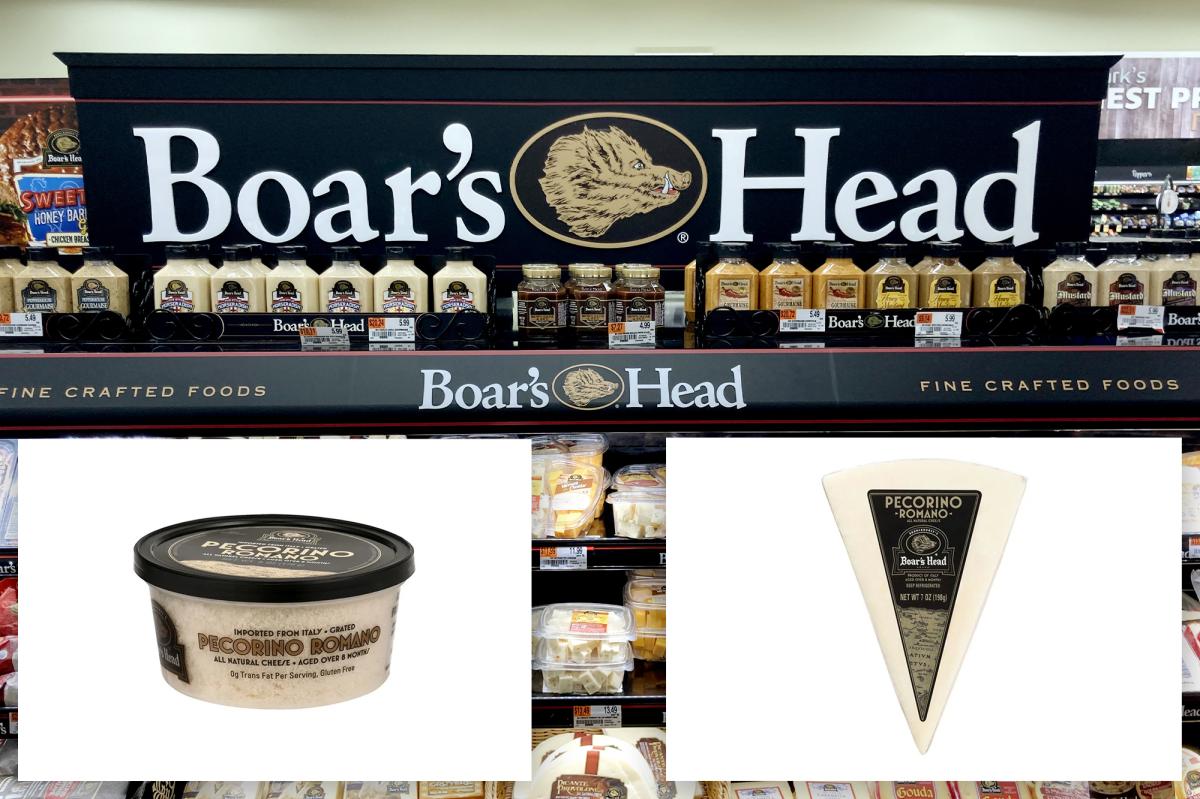The Great Betrayal at the Deli Counter
Let’s cut the crap. You thought you were buying the best, didn’t you? You walk up to that gleaming deli counter, past the generic brands swimming in their own brine, and you point to the one with the fancy logo. Boar’s Head. It’s the name your parents trusted, the one that supposedly stood for quality, for uncompromising freshness, for a standard above the rest. You pay that premium price because you believe you’re getting a superior product, something safe to feed your family, to stuff into your kids’ lunchboxes. Well, I’m here to tell you that faith was tragically, and perhaps lethally, misplaced. This isn’t just another boring food recall notice you skim past. This is a five-alarm fire, a screaming siren in the night, a wake-up call to anyone who has ever ordered a pound of their Rosemary Ham or a nice block of their cheese. It’s a story of potential contamination with one of the nastiest foodborne pathogens out there. Listeria.
And the most stomach-churning part? This whole fiasco is haunted by the ghosts of the past, specifically an outbreak that already killed ten people. Ten. Let that number sink in. That isn’t a statistic; those were ten human beings with families and lives that were snuffed out. And now, here we are again, talking about the same brand and the same potential killer lurking in their products. It’s an absolute disgrace.
What They’re Hiding: The Faceless ‘Third Party’
So what’s the official line? The PR-scrubbed statement carefully crafted by a team of lawyers? Oh, they’re recalling some cheese items—specifically Charcuterie Trio and a Capocollo, Salami, and Soppressata pack from their collaboration with Locatelli—due to a potential listeria risk. But get this. They’re blaming it on a “third-party manufacturer.” How convenient. This is corporate blame-shifting 101, a classic move to create distance between the beloved brand name and the filth that might be in its products. They want you to envision some rogue, independent factory messing up, completely disconnected from the Boar’s Head empire. Don’t buy it for a second. When you slap your logo on a package, you own everything inside it, from the first slice to the last. You are responsible. Period. Who is this mystery manufacturer? Why aren’t their names plastered all over the headlines? This anonymity is a shield, designed to protect the multi-million dollar brand image of Boar’s Head while some smaller, faceless company takes the fall. It’s a calculated strategy to manage public perception, ensuring that you, the consumer, continue to associate Boar’s Head with idyllic picnics and family gatherings, not with hospital beds and pathogenic bacteria. It’s a shell game, and you’re the one being played. They take the profits when things go right, but the moment a deadly bacteria enters the equation, they point a finger into the shadows and hope you don’t ask too many questions. We should be asking all the questions. We should be demanding to know every single stop on that supply chain, from the farm to the factory to the shrink-wrapped package sitting under the fluorescent lights of your local grocery store. Anything less is an insult to our intelligence and a gamble with our health. A deadly gamble.
Listeria Isn’t Just ‘A Little Tummy Ache’
The corporate press releases use sanitized language like “potential contamination” and “health risk,” but let’s talk about what Listeria monocytogenes actually is. This isn’t your garden-variety food poisoning that has you praying to the porcelain god for 24 hours. This is a monster. Listeria is a particularly insidious bacteria because it can grow and thrive in the cold temperatures of a refrigerator, a place you believe is keeping your food safe. It’s a silent predator. For most healthy people, it might just cause fever and diarrhea, but for the vulnerable? It’s a potential death sentence. We’re talking about pregnant women, newborns, adults over 65, and anyone with a weakened immune system. For a pregnant woman, a listeria infection can lead to miscarriage, stillbirth, premature delivery, or a life-threatening infection in the newborn baby. Can you even begin to process that horror? A simple sandwich, a quick snack of cheese and crackers, could lead to an unimaginable family tragedy. For the elderly or immunocompromised, it can cause an invasive illness where the bacteria spreads beyond the gut, leading to septicemia (blood infection) or meningitis (inflammation of the membranes surrounding the brain). This is the reality they’re downplaying. They’re not just recalling cheese; they’re recalling a product that could be a ticking time bomb in the refrigerators of the very people most susceptible to its devastating effects. It’s a level of negligence that borders on the criminal, especially when you consider that this isn’t their first rodeo with contamination scares. The casual nature of these recall announcements is a slap in the face to every person who has ever lost a loved one to foodborne illness. It’s a calculated decision to minimize panic and, by extension, minimize the financial hit to the brand. But the risk is not minimal. The risk is catastrophic.
A Pattern of Disregard
The recall announcement mentioned that a previous outbreak killed 10 people last year. Let’s connect the dots here, because the mainstream reports are tiptoeing around it. While they might not be explicitly linking the *same* third-party supplier, the fact remains that the shadow of a deadly outbreak hangs over this brand’s ecosystem. Did they learn anything? Did they audit their entire supply chain with a fine-toothed comb after people literally DIED? Or did they just sever ties with one bad actor and cross their fingers, hoping lightning wouldn’t strike twice? This new recall suggests the latter. It points to a systemic rot, a corporate culture that is more concerned with logistics and profit margins than with watertight safety protocols. This is what happens when food production becomes so vast, so outsourced, so convoluted that accountability becomes a game of hot potato. The brand blames the supplier, the supplier blames the distributor, the distributor blames a bad batch of ingredients. And around and around we go, while the consumer is left holding a potentially contaminated product and a fistful of useless receipts. This is not an isolated incident. This is a symptom of a diseased industry. An industry that has consolidated power into the hands of a few massive corporations that operate with layers and layers of subcontractors, making true oversight nearly impossible. They create a system so complex that when it inevitably fails, no single entity has to take the ultimate blame. It’s a feature, not a bug. They have built a fortress of plausible deniability, and the cost of its construction is paid for with public health. We are witnessing a fundamental breakdown of trust. The very seal on the package, once a guarantee of quality, is now just a branding element on a product that could have come from anywhere and been handled by anyone, with standards that are, frankly, a complete mystery. It’s a terrifying thought, and one that should make you reconsider every single item in your shopping cart.
Your Fridge is the New Front Line
So what now? They tell you to check your fridge. Look for the specific products, the specific UPC codes, the specific sell-by dates. They tell you to throw it away or return it for a refund. But that’s not enough. That’s a band-aid on a gaping wound. This should be a moment of reckoning for every single one of us. We need to stop blindly trusting brands just because they have a folksy origin story and a higher price tag. Price does not equal safety. A premium logo does not guarantee a premium process. We’re at a point where we have to become our own food safety inspectors, our own investigative journalists, our own fierce advocates. We must demand more. Not just from Boar’s Head, but from the entire food industry and the regulatory bodies that are supposed to be our watchdogs but often seem more like toothless lapdogs. Where is the FDA in all this? Where is the proactive testing? Why are we always learning about contamination *after* the product has been sitting in our homes for weeks? We are constantly playing defense in a game that is rigged against us. The burden is always shifted to the consumer: check the codes, read the recall notice, protect yourself. That is an abdication of responsibility on an epic scale. The burden belongs to the multi-billion dollar corporation that profits from selling us these goods. Their job is to ensure it’s safe *before* it ever leaves the factory. Their job is to have a supply chain so transparent and so rigorously monitored that the phrase “third-party manufacturer” isn’t an excuse, but a mark of guaranteed quality. They have failed. And until there are real, painful consequences for these failures—not just stock dips and temporary bad press, but massive fines, executive accountability, and maybe even criminal charges—this will keep happening. Again and again. So check your fridge, yes. But then, check your assumptions. Check your loyalty. And demand better. Because your life, and the lives of your family, could very well depend on it.


